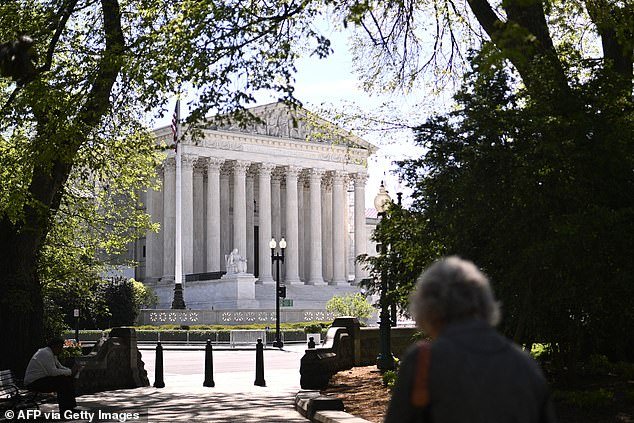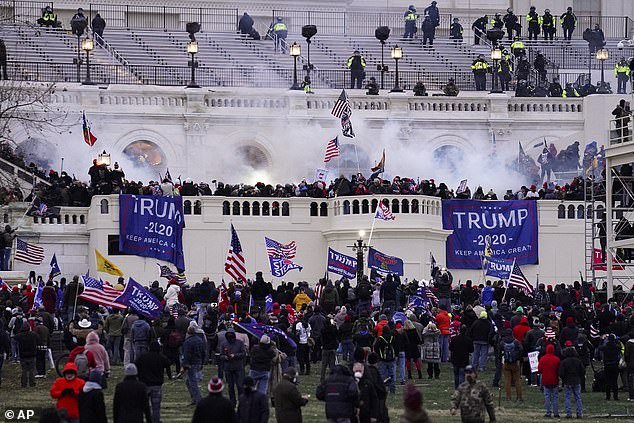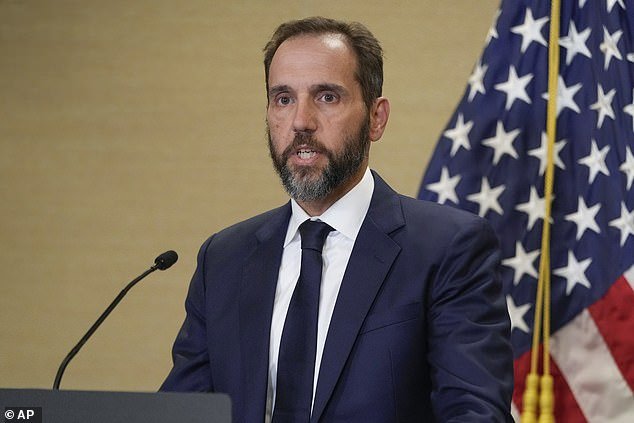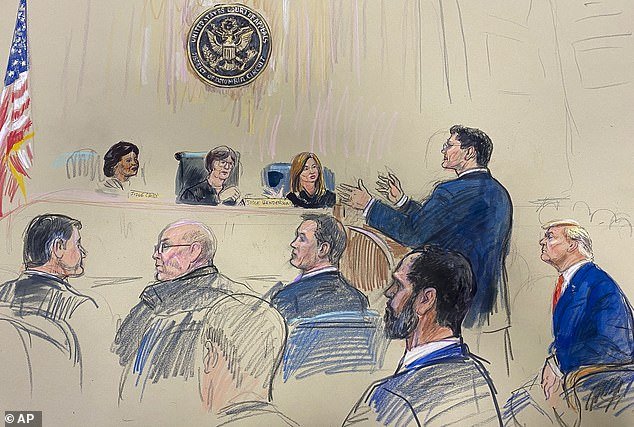Trump’s federal criminal cases hang in the balance as the Supreme Court prepares to debate whether he is immune from prosecution
Donald Trump’s lawyers will try to convince the Supreme Court of his immunity from prosecution since his time as president in a blockbuster hearing on Thursday, as Jack Smith tries to get his January 6 case back on track.
Trump and his team have argued that all presidents would be undermined if Trump could not assert the immunity from prosecution for “official acts” as president that he claims to enjoy. They even told an appeals court that a president could order SEAL Team 6 to kill a political rival and avoid prosecution.
But legal experts don’t expect the court’s conservative 6-3 majority — including three Trump-nominated justices — to agree with his claim. A decision that wastes time or sends a decision back to lower courts to sort through a new immunity test could still play in Trump’s favor.
Trump’s trial in Washington, DC has stalled pending his legal claim, which follows a series of successful attempts to postpone his four criminal trials. It could also affect his three other criminal trials related to the retention of national security information at Mar-a-Lago, his election efforts in Georgia and the Stormy Daniels case.
The Supreme Court will hear arguments on former President Donald Trump’s claim of absolute immunity from criminal prosecution for actions taken while in office
The court showdown comes as Trump’s trial resumes in Manhattan criminal court over “hush” payments to the porn star, in just the latest demonstration of how his 2024 campaign is being fought out in the courthouse.
Trump’s lawyers detailed the spending of the protections they say he enjoys when an appeals court panel heard the case at a hearing in January.
Judge Florence Pan asked Trump attorney John Sauer: “A yes or no question. Can a president who ordered SEAL Team 6 to assassinate a political rival, who has not been impeached, be subject to criminal charges?”
“If he was impeached and convicted first,” Sauer responded.
“So your answer is no,” Pan shot back.
“My answer is qualified: yes… you would expect a swift impeachment and conviction,” Sauer said. It was just one of the hypotheses she presented to Trump’s team before the panel rejected his claim.
The Supreme Court agreed in February to fast-track the case. But the move still stalled the Jan. 6 case, having failed to take quicker action by simply upholding the appeals court’s decision. That significantly increased the chance that the case would not go to trial before the November elections.

The Supreme Court already ruled in Trump’s favor after a ruling by the Colorado Supreme Court kicked him off the ballot there

Trump was indicted in Washington DC over his 2020 election efforts

Special counsel Jack Smith invoked Nixon’s pardon policy in his April letter to the Supreme Court

A lawyer for former President Donald Trump (right) faced a barrage of questions from a three-judge panel about his claims of presidential immunity — including whether he could use the military to kill a political rival
Even a ruling against Trump may not be released until June.
Smith ripped Trump’s claim in his Supreme Court filing.
“The Framers have never endorsed criminal immunity for a former president, and all presidents, from the founding through the modern era, have known that they may be held criminally liable for official acts after leaving office,” he wrote.
“Petitioner asserts a new and sweeping immunity from the federal criminal laws that govern the conduct of all citizens,” he wrote.
“No presidential power at issue in this case entitles the President to claim immunity from the general federal criminal prohibitions supporting the charges: fraud against the United States, obstruction of official proceedings, and denial of the right to vote. “The President’s constitutional duty to ensure that the laws are faithfully executed does not imply a general right to violate them,” he wrote.
Pointing to an earlier constitutional crisis, Smith argued that Nixon’s acceptance of a pardon from Gerald Ford showed that the president enjoyed no such immunity.
“The closest historical analogy is President Nixon’s official conduct in Watergate, and his acceptance of a pardon implied his and President Ford’s recognition that a former president was being prosecuted. Since Watergate, the Justice Department has believed that a former president could face criminal charges, and independent and special counsel have acted on that same understanding. See you petitioner.”
Judges are expected to question lawyers about the application of the 1982 Nixon vs. Fitzgerald, which immunizes a president against private civilian harm. But it “does not extend to federal criminal charges,” Smith said.
The hearing will begin at 10 a.m. and is expected to last two hours – overlapping with the Manhattan testimony of ex-National Enquirer CEO David Pecker.
Trump’s team claims the Constitution’s Impeachment Clause is in their corner. The Impeachment Arrest Clause says that an office holder convicted by the Senate is nonetheless “liable and subject to indictment, trial, judgment, and punishment.”
But Smith’s team says it would be ridiculous to require a conviction by Congress, a political body, for prosecution for crimes that have nothing to do with official conduct.
